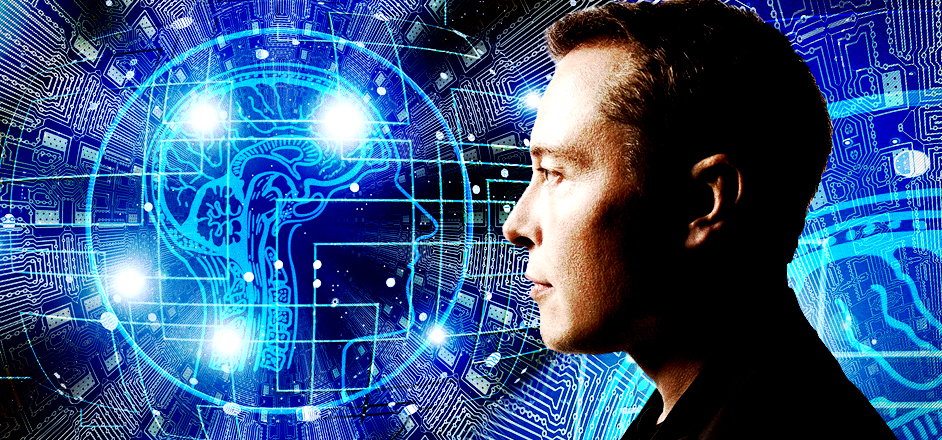It started at a safe distance: in laboratories, away from the common people, where only shrewd technicians and engineers might interact with it. Then it evolved. It left the lab and started nesting in our homes, on our desks — still safely detached from our person, though, growing ever-closer. Eventually, it morphed again, naturally, shrinking, advancing, becoming smarter, burrowing into our backpacks and our pockets, consuming our attention with apps and messages and camera functions.
Today, computer technology has latched onto our wrists, climbed onto our heads, engulfed us in a cloud of digital information. And soon, it may even bore its way through our skulls and into our brains — plugging directly into our consciousness, effectively turning people into cyborgs.
That’s what Elon Musk wants to do at least. And if he’s successful, it may change the very nature of our human race.
In July of 2016, the famous tech mogul quietly started a new tech company called Neuralink, aimed at developing “neural lace” technology — an implant that is surgically inserted into the human skull, and that will allow people to interact with all kinds of software and hardware directly from their brain. It would turn your field of vision into a desktop for computer functions.
“At its most basic form, neural lace is an ultra-thin mesh that can be implanted in the skull, forming a collection of electrodes capable of monitoring brain function,” explains Musk, casually. “It creates an interface between the brain and the machine.”
That’s a pretty serious leap forward in our relationship with technology. Like moving in with a coworker you only recently met, and then drunkenly fucking them. It’s weird, it’s uncomfortable, and, sure, maybe it will have some kind of work-related benefit, but for how long? How long before you realize what a psychotic bitch that other person is and that you need to get out before you lose your job and perhaps even your life?!
Except, you can’t move out. Because that crazy co-worker fuck-buddy roommate is actually surgically implanted in your head. There is no going back.
"I have exposure to the very cutting-edge AI, and I think people should be really concerned about it … ,” Musk was quoted at the National Governor’s Association Meeting in 2017, “I keep sounding the alarm bell, but until people see robots going down the street killing people, they don't know how to react, because it seems so ethereal."
Which, coming from him, sounds like a legitimate concern. Is a legit concern. Terminator robots are not a reality mankind is equipped to handle. They would outsmart us, outperform us and out-survive us just like The Schwarzenegger did in the film. Maybe Musk is right — maybe, without brain implants and cyborg qualities, humans will be swallowed up by the very engine we created. Maybe we do need neural lace.
But the question then arises: what will we become? If we start augmenting our cognitive abilities with brain implants that effectively make our brains part-computer, and start replacing our weak and fragile limbs with robotic prosthetics, are we still human? Where is the line?
It is “Theseus’ Paradox” come to life. If humans start replacing our own natural body parts, how much has to be electronically enhanced before we aren’t human any longer? Ten percent? Fifty percent? When do we change? And what do we change into?
These aren’t easy questions to juggle with — though, they might be necessary ones. Because, Musk’s company, Neuralink, already had $26.96 million in funding as of August 2017. It has begun research and it is hiring. It may only be a matter of time before the first “neural lace” test subjects go under the knife (though, I doubt Musk will be among them).
Which means that in our lifetimes, we may see a day when “organic humans” have become a thing of the past. When younger generations don’t even remember what life was like before we merged our consciousness with computers.
“Over time I think we will probably see a closer merger of biological intelligence and digital intelligence,” Musk told a crowd in Dubai last year, explaining that, it’s mostly about the speed of the connection between your brain and the digital version of yourself.
So, while there are still kinks to work out, the technology is inevitable, it seems. It is coming and it faces us with a serious choice between two deeply strange paths: embrace and accept the future of cyborg humans, or let AI run our species into extinction?
Either way, it kind of feels like technology’s slow invasion, from the lab into our home, into our pockets and our heads, will soon be complete. So, cuddle up to that computer, plunge those earbuds into your eardrums and let the Internet, inter-you.
We might as well enjoy the ride, wherever this crazy train is taking us.



Leave a Reply
You must be logged in to post a comment.